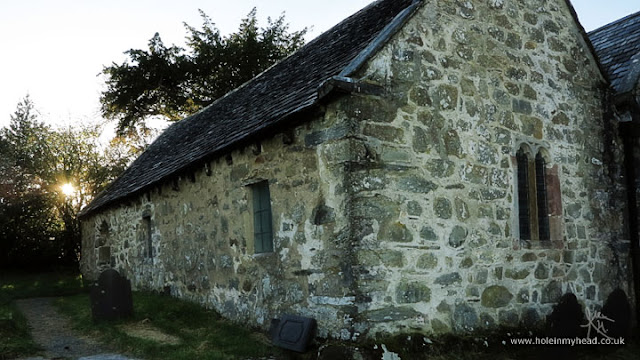Welsh kingdoms unite again and destroy a powerfull Norman army.
1136 was an eventful year for the Welsh, they won the Battle of Llwchwr near Swansea, they ambushed and killed a powerful Norman Lord in Gwent, they did however lose the brave Gwenllian when she led an army against the Normans while her husband was on his way to her dads, (Gruffudd ap Cynan of Gwynedd) to ask for support against the invaders, they also had the battle of Crug Mawr
The battle of Craig Mawr was a major victory for the Welsh against the Normans,
The Norman army led by Robert fitz Martin consisted of around 1,000 professional Flemish infantry and another 7,000 infantry . In addition, it had around 2,000 cavalry, most of which was heavy cavalry. The Welsh army under Owain Gwynedd was slightly smaller at around 6,000 infantry and 2,000 longbowmen. Cavalry was around 1,000 horse.
The Normans marched northeast of Cardigan and fortified their position on Crug Mawr hill to meet the Welsh army coming from the north. Flemish troops were placed at the front and the Norman levies were in the reserve. Cavalry were right at the back, as they would be used to smash the Welsh forces when they fled – a classic Norman tactic. Being on a hill, the Normans enjoyed a strategic advantage.
The Welsh deployed their archers in the front, with cavalry on the flanks. The infantry were right behind the longbowmen, with the most experienced infantry in reserve.
As the Welsh advanced, they launched a massed arrow attack. This would be one of the earliest uses of the longbow in warfare, and it’s clear the Normans were unprepared for the devastating results. The infantry began to waver, so fitz Martin ordered a cavalry attack.
Massed arrows directed at cavalry, however, blunted the leading edge, and the attack rapidly lost momentum. As the cavalry approached, the Welsh archers retreated behind the spearmen, who repulsed the Norman attack. The Welsh cavalry on the flanks closed in, routing the infantry and the cavalry.
The Normans fled with the Welsh following closely behind. The troops crossing at Cardigan Bridge caused it to collapse, trapping thousands behind it. Many left armour and weapons behind as they attempted to swim over the river, and the triumphant Welsh slaughtered many more. This was a significant event in Welsh history that set the Normans back many years and give the Welsh great confidence
Recently, iv seen some people say it didn't happen, obviously because the Welsh won. It did happen, and I can't find a single historian to back these people up, but I found loads that say it did, list below, here are some sources.
The Breviate Chronicle of 1136 gives a contemporary account of the battle
EDWARD LAWS QUOTES FLORENCE OF WORCESTER (VOL III, P. 97):
...the slaughter was so great that besides the male prisoners there were 10,000 widows captured, whose husbands had either been slain in battle, burnt in the town, or drowned in the Teivi. Apparently the whole foreign population had collected at Cardigan for safety. The bridge indeed had been broken down, but the river was so choked with the carcasses of men and horses that folks passed over dry footed.
Gerald of Wales, in his Itinerarium Cambriae of 1191, describes (56 years after the battle): Members of Gerald's family were participants in the battle
We proceeded on our journey from Cilgarran towards Pont-Stephen, leaving Cruc Mawr, i.e. the great hill, near Aberteivi, on our left hand. On this spot Gruffydh, son of Rhys ap Theodor, soon after the death of King Henry I, by a furious onset gained a signal victory against the English army...[8]
Brut y Tywysogion
In the close of that year they came a second time into Ceredigion, having with them a numerous array of choice combatants, about six thousand fine infantry, and two thousand one hundred cavalry in armour. And to their aid came Gruffudd, son of Rhys, and Howel, son of Maredudd of Brecheiniog, and Madog, son of Idnerth, and the two sons of Howel, son of Maredudd. And all those conjointly drew up their troops at Aber Dyvi. And to oppose them came Stephen the constable of the town, and Robert, son of Martin, and the sons of Gerald the steward, and William son of Ore, and all the Flemings, and all the marchers, and all the French from Aber Nedd unto Aber Dyvi. And after joining battle, with cruel fighting on every side, the Flemings and the Normans took to flight, according to their usual custom. And after some of them had been killed, and others burned, and the limbs of the horses of others broken, and others taken captive, and the greater part, like fools, drowned in the river, and after losing about three thousand of their men, they returned exceedingly sorrowful to their country. After that, Owain and Cadwalader returned, happy and rejoicing, to their country, having obtained the victory honourably, with an immense number of prisoners, and spoils, and costly garments and arms.
Here is a list of historians who say it happened, i can't find a single one who questions the battle at all, just anti Welsh facebookers.
Pritchard, E.M.
John Edward Lloyd
Griffiths, R.A.
Pryce, H.
Davis, P.R.
Douglas,
Gater, D.
Matthews, R.
Johnson, G.K.
Turvey, R.K.


Comments
Post a Comment